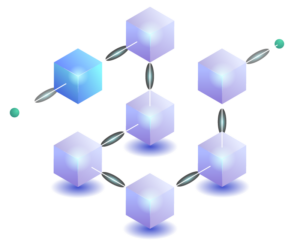NFT Platform Frequently Asked Questions
On this page, you will find answers to the most popular questions of our customers.
Can’t find what you need? Contact us.
General
A non-fungible token is a unit of data stored on a digital ledger, called a blockchain, that certifies a digital asset to be unique and therefore not interchangeable.Simply put, a non-fungible token is a one-of-a-kind asset that lives online and is managed in a digital ledger.
The “non-fungible” part of the name means they are not mutually interchangeable and cannot be replaced or exchanged with one another.
Non-fungible tokens and their smart contracts allow for detailed attributes to be added, like the identity of the owner, rich metadata, or secure file links. The potent of non-fungible tokens to immutably prove digital ownership is an important progression for an increasingly digital world. They could see blockchain’s promise of trust-less security applied to the ownership or exchange of almost any asset.
NFTs provide many benefits and added value to marketeers, such as:
● It is the latest thing in tech
● Appeals to younger and tech-savvy crowds
● Differentiates
● Provides something truly special and unique
● In acknowledgement of
● Creates an affiliation, a bond and an expectation for future NFT items
● Creates a community
● Could be used to support community foundations
● Reinforces connection with a brand
● Could have monetary value in time
● Provides valuable information about users and clients
Step1: Scan a QR code or receive a link via email that will redirect you to the registration/claim page.
Step2: Provide your personal details/email
Step3: Claim the NFT
Step4: Transfer the NFT to your wallet (in case you have one). If not, set up your blockchain wallet address with the help of our guidelines and claim your NFT
Step5: Create an account as a client of the issuer to register and claim NFTs. Alternatively, receive the NFT in your blockchain wallet address in Step 1.
NFTs provide many benefits and added value to products, such as:
● Verifiable uniqueness
● Emotional attachment
● Being part of the tech revolution
● Imposing scarcity on non-scarce items
● Performance
● Turning stories into scarce assets
● Reflecting on the appreciation of moments
● New monetization models
Each NFT includes a unique identification code that’s recorded on a blockchain like Ethereum. When you buy/receive an NFT, you own the underlying code and the rights to the asset. A public record of ownership is then encoded into the blockchain, which makes it indisputable. Someone might be able to take a screenshot of the asset, but they won’t be able to copy the actual code behind it. This is a powerful protection against fraud and counterfeits.
With Proof of Work (PoW) blockchains becoming a hot topic for discussion as far as carbon footprint and eco-friendliness go, we have chosen the Eco-Friendly blockchain scaling solution of Ethereum, Polygon. To learn more about Polygon’s eco-friendliness, click here.




